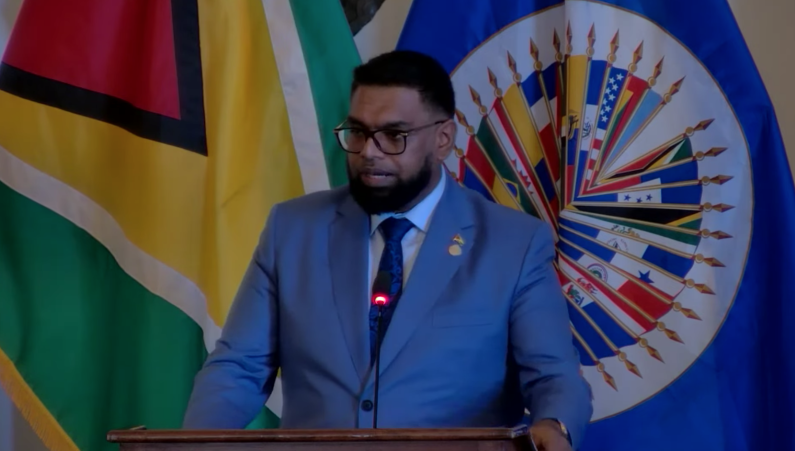
Without ever mentioning Venezuela, President Irfaan Ali this morning opened his address at the Organization of American States (OAS) headquarters in Washington by highlighting what he called a historical territorial threat to Guyana.
The President, who addressed the OAS Protocolary meeting of the Permanent Council, said that since independence, Guyana has had to deal with acts of aggression that threaten its territorial integrity and has intimidated and discouraged investments, which has historically stunted the country’s growth and development.
However, he said, the country has sought a peaceful resolution to the claims laid by Venezuela by accepting the decision of the United Nations to refer the matter to the International Court of Justice which is currently hearing the matter.
He said Guyana remains committed to adhering the Charters of the OAS and the UN in dealing with such cases.
“Our acceptance of the decision of the UN Secretary General to refer the matter to the International Court of Justice which is currently hearing the case is a testament to our unwavering commitment to those principles. Our stance, mirrors the ethos of this organization that disputes should be settled peacefully, in the furtherance of international law” the President said.
The President said accepting established borders has been the tradition in the hemisphere—a tradition, he noted, that has shielded nations from conflicts, paving the way for peace, co-operation and development.
He said the threat the Guyana’s sovereignty is a relic of history.
“Guyana stands firm in its belief, that peaceful settlements of disputes, is not merely an option, but a duty and a corner stone principle of the OAS charter. In a world where shifting geo-political dynamics challenged established norms, Guyana re-affirms its unwavering commitment to the principles enshrined in both the OAS and UN charter,” the President noted.
The President said Guyana will be guided by international law to bring the matter to a definite close.
“We will continue to champion the cause of international law, as we seek a lasting, peaceful resolution to the territorial claim, one that was resurrected on the brink of our independence after decades of acceptance,’ the President noted.
In 2018, Guyana asked the International Court of Justice to confirm that the border which was laid down in an 1899 arbitration between Venezuela and the then-colony of British Guiana is valid.
Venezuela, while boycotting much of the proceedings, tried to stop the case from moving forward by arguing the United Kingdom should be involved in the case as Guyana was a British colony in 1899.
However, in a 14-1 decision, the Judges rejected that reasoning.






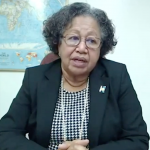
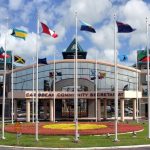
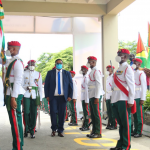
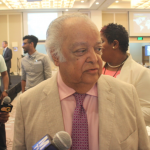

You must be logged in to post a comment Login